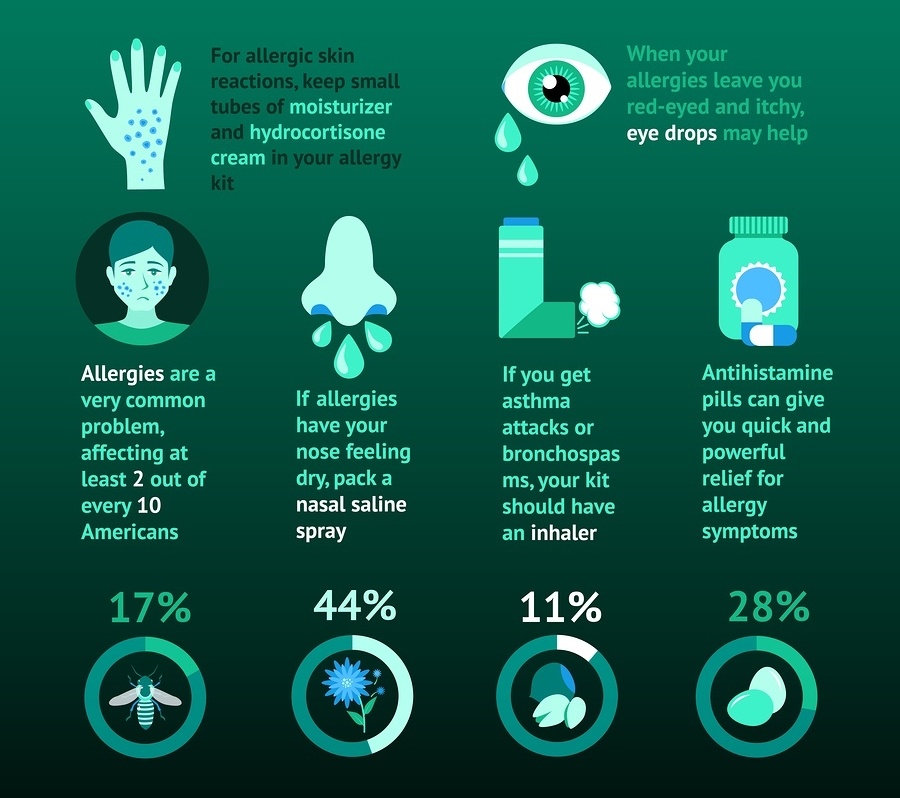Is there a difference?
One of the most frequently asked questions this time of year isn’t, “How many more days until the next work holiday?” But rather, “Do I have allergies, or is this a cold or the flu?” During this season, people often mistake seasonal and perennial allergy symptoms for a cold or the flu. There are a few ways to distinguish between the three.
Seasonal and perennial allergies are your immune system’s response to allergens, while the common cold and flu are caused by viruses. While these afflictions can have similar symptoms — such as fatigue, watery eyes, runny and stuffy nose, post-nasal drainage and an associated cough — they are in fact very different diseases. Different diagnoses have symptoms that while similar, vary in frequency.
While the symptoms for the three diseases are similar, the timing of onset and treatment of those symptoms differs greatly. The onset of symptoms, for both the flu and allergies, come on suddenly. The flu often starts with an abrupt fever, headache, body aches and fatigue. Allergy symptoms come on all at once when you’re exposed to the offending allergen. However, the onset of colds can take longer, with symptoms appearing one at a time. First there’s sneezing, followed by a runny nose and then the congestion.
 Oftentimes, symptoms take days to appear. Although these differences appear to be clear on paper, a good way to validate your symptoms are from allergies is to remove yourself from the environment in which you are symptomatic. If your symptoms resolve, they’re most likely from exposure to allergens. However, if your symptoms continue or worsen, you may be experiencing the flu or a cold. Symptoms for a cold can be felt one to four days after catching the virus, and they usually subside in four to 10 days. As for flu symptoms, most of the time, they come on suddenly and last about two to five days. On the other hand, allergy symptoms can last for several weeks or months, depending on the time of year and your specific allergies.
Oftentimes, symptoms take days to appear. Although these differences appear to be clear on paper, a good way to validate your symptoms are from allergies is to remove yourself from the environment in which you are symptomatic. If your symptoms resolve, they’re most likely from exposure to allergens. However, if your symptoms continue or worsen, you may be experiencing the flu or a cold. Symptoms for a cold can be felt one to four days after catching the virus, and they usually subside in four to 10 days. As for flu symptoms, most of the time, they come on suddenly and last about two to five days. On the other hand, allergy symptoms can last for several weeks or months, depending on the time of year and your specific allergies.
You can get some relief from allergy symptoms by taking a short or long-acting anti-histamine, nasal steroids or avoiding the allergen altogether, as long as you know the specific allergen that is making you feel miserable. The long-term, and most effective, treatment for allergies is receiving allergen immunotherapy treatment or allergy shots. The common cold has no real treatment and will go away on its own. Its symptoms can be treated with rest, pain relievers and decongestants. Similarly, the flu, if caught early, can be treated with an antiviral, otherwise the flu will eventually go away with plenty of rest.
While this can help you understand what you may be experiencing, it’s important that you speak to your healthcare provider about your symptoms. Your provider can conduct a test for each disease and accurately diagnose the cause of your symptoms. Take this opportunity to talk to your provider about allergy testing and immunotherapy. United Allergy Services enables primary care physicians to provide their patients with allergy testing and customized allergy shots that patients can self-administer at home. This means no more trips back and forth to the allergist. For seasonal and perennial allergy sufferers, self-administered immunotherapy, under the guidance of a primary care physician, allows a broader population of patients to receive high-quality, affordable and safe allergy care, so you can be symptom free and enjoy a healthy life.
For more information on allergy testing and immunotherapy visit www.unitedallergyservices.com.







Recent Comments